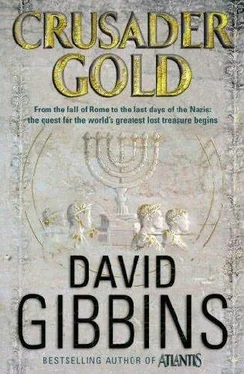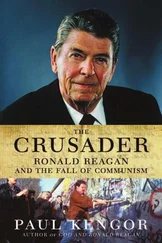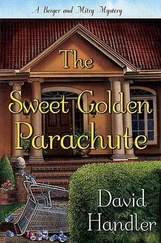David Gibbins - The Crusader's gold
Здесь есть возможность читать онлайн «David Gibbins - The Crusader's gold» весь текст электронной книги совершенно бесплатно (целиком полную версию без сокращений). В некоторых случаях можно слушать аудио, скачать через торрент в формате fb2 и присутствует краткое содержание. Жанр: Прочие приключения, на английском языке. Описание произведения, (предисловие) а так же отзывы посетителей доступны на портале библиотеки ЛибКат.
- Название:The Crusader's gold
- Автор:
- Жанр:
- Год:неизвестен
- ISBN:нет данных
- Рейтинг книги:3 / 5. Голосов: 1
-
Избранное:Добавить в избранное
- Отзывы:
-
Ваша оценка:
- 60
- 1
- 2
- 3
- 4
- 5
The Crusader's gold: краткое содержание, описание и аннотация
Предлагаем к чтению аннотацию, описание, краткое содержание или предисловие (зависит от того, что написал сам автор книги «The Crusader's gold»). Если вы не нашли необходимую информацию о книге — напишите в комментариях, мы постараемся отыскать её.
The Crusader's gold — читать онлайн бесплатно полную книгу (весь текст) целиком
Ниже представлен текст книги, разбитый по страницам. Система сохранения места последней прочитанной страницы, позволяет с удобством читать онлайн бесплатно книгу «The Crusader's gold», без необходимости каждый раз заново искать на чём Вы остановились. Поставьте закладку, и сможете в любой момент перейти на страницу, на которой закончили чтение.
Интервал:
Закладка:
“You are free to enter.”
The guards raised their weapons and the Jesuit passed through, avoiding the usual body search and metal detector. He walked straight along a wide corridor on the ground floor, then turned left at the end and continued until he came to the ornate door of a private chapel, its entrance marked by trays of dedicatory candles on either side. He knocked once and pushed the door open. In the candlelit gloom he saw another man kneeling before the simple altar at the far end of the chapel. The man crossed himself and stood, then turned towards the door. He was tall and aquiline, with white hair, and he wore the full episcopal vestments of a cardinal, with a gold cross hanging in front of his scarlet cassock. He had the benign, ageless face of one who had spent many years in holy orders, but with a hard edge to his eyes. It was an expression appropriate for a man such as he, a man whose ambition had brought him to the very threshold of supreme power in the Catholic Church.
“Eminence.” The Jesuit bowed slightly, then closed the door behind him.
“Monsignor.”
The two men spoke in English, the Jesuit with a clipped drawl that could have been South African, the cardinal with a hint of north European in his accent.
“He is here?”
“The second one present at the opening of the chamber. We suspected, and he confessed. The Holy See has techniques of persuasion refined over the centuries.”
“And the other?”
“He is your next task.”
The Jesuit walked forward and knelt in front of the cardinal. The cardinal quickly drew off the holy ring from the middle finger of his right hand and replaced it with another, a heavier, flat-faced ring that glinted in the candlelight as he held it out. The Jesuit took his hand and kissed the ring, closing his eyes as his lips brushed the familiar shape, and with his other hand felt his own ring hanging round his neck under his cassock. He stood, made the sign of the cross and backed reverently towards the door, then stopped for a moment and held up his right hand towards the cardinal, whispering words in a language that sounded unearthly, words never before uttered in this holy place, and which seemed to blaspheme against all that it stood for.
“Hann til ragnaroks.”
The Jesuit closed the door of the chapel behind him and walked down the long corridor, his footsteps echoing off the walls of the palace. He emerged into an open courtyard, raising his hands in prayer as two officials passed, then made his way towards an unassuming entrance along the other side. The bells of St. Peter’s suddenly began to boom across the still air of the city, asserting the sovereignty of the Holy See as they had done since the dying days of the Roman Empire. Above him the walls of the courtyard framed the sky, two huge birds of prey circling far overhead, and he could hear the dull rumble of the city outside. He ducked through the entrance and looked quickly behind him, then gathered up his cassock and mounted the stairway to the first floor. The corridor ahead was lined with statues, bulletin boards and posters advertising exhibits, but was empty of people, today being a holiday for the museum staff. The Jesuit reached a door with a light on inside, just where he had been told it would be, and saw the word CONSERVATORI above the lintel.
He paused, not out of hesitation but to relish the moment. In the shadows he stood with his head bowed, his fists clenched. Sixty-five years earlier his forefathers had failed to breach these walls, had stopped short of taking the Vatican in their triumphal sweep through Rome. Now he would make amends, he would make his mark. He unclenched his left hand and raised it to his face, drawing his index finger down the ragged scar that pulsated beneath his beard, pressing it hard until he flinched in pain. He slipped his left hand back under his cassock and with his other hand knocked three times on the door.
“Enter,” a muffled voice said in Italian.
The Jesuit pushed the door open and closed it behind him. The room was crammed with books and manuscripts, with a computer workstation at the far end. In the foreground was a fragmentary stone relief sculpture on a pedestal, and in front of it sat a middle-aged man in jeans and a casual shirt, hunched over a notebook.
“Monsignor.” The man finished what he was writing and looked up, his expression alert and intelligent. “I had not expected to be interrupted today. What can I do for you?”
“You are the chief conservator?” The Jesuit spoke in Italian.
“I am.”
“You were present at the discovery of the secret chamber in the Arch of Titus, along with Father O’Connor?”
The other man suddenly looked deflated, and tossed his notebook on the floor. “Now everyone seems to know. We kept it secret for the good of the Church. I wish we had never found it.”
“So do I.”
The silenced Beretta coughed twice and the conservator jerked back on his stool, an expression of horrified surprise on his face. He tottered over and fell heavily to the floor, coming to rest with his arm splayed awkwardly over his front, his eyes wide open and uncomprehending in death. The Jesuit pulled his left hand out of his cassock and slowly raised it to his face. He drew his finger down the scar on his cheek, again and again, as hard as he could, grimacing with pleasure as he watched the blood seep from the man’s chest and pool on the cold stone slabs beneath him.
There would be more.
“Activating ice probe now.”
Costas turned to Jack as he spoke through the intercom, and the two men gave each other the okay sign. For about the fifth time Jack cast a critical eye over Costas’ equipment. Once they shed the umbilical they would be absolutely reliant on their breathing systems and on each other, with no bail-out option, no emergency escape route to the surface. The IMU equipment was state of the art, with a rock-solid computer system which took the job of calculating their breathing mix and ascent rate entirely out of their hands. It had been tested in conditions of extreme heat six months before inside a submerged volcano, but this was the first time it had been deployed in water that was as cold as it could be without turning to ice.
“Take up your position.”
Jack swung in from where he had been hanging by one hand and gripped the metal bar beside Costas. They were like two climbers on a vast ice wall, dwarfed by the immensity of the berg. Below them the ice dropped off hundreds of metres into the abyss, where the slope of the threshold sheered off to unimaginable depths, to a place of freezing blackness no human had ever dared enter.
“There’s only one safety drill,” Costas said. “Any sign of movement in the ice and we switch to trimix. If this baby rolls off the threshold we’re going down. Remember, the trimix gives us breathable gas to one hundred and twenty metres. That should at least give us some margin.”
Jack gave another okay sign and checked the three hoses which fed into the ports in his helmet. In truth he and Costas both knew their safety drill was a forlorn hope. If the berg moved off the threshold, the vast bulk of it would slip underwater, its base plunging hundreds of feet. If the movement of the ice didn’t crush them, the pressure of a sudden descent into the abyss would kill them instantly.
Jack shut his mind to the possibility and focussed on the outlandish device in front of them. They had just opened up the protective cage that cradled the probe against the berg, and attached the radio buoy which they planned to release to the surface once they re-emerged. The probe was already wedged partway into the ice, having been put in position earlier by the pair of divers they had seen from the Aquapod. Directly abutting the ice was a metal ring two metres in diameter, the width of the tunnel the machine would bore. The tunnel would be just wide enough for the two of them to follow on side by side, with little room to spare. The superheated element in the tube was complemented by an array of microwave and laser cutters emanating from the main body of the device, a metre-wide cylindrical canister directly in front of them. A small but powerful water jet would funnel the newly melted water away and propel the device forward. On the rear face above the guide rail a waterproof LED screen glowed a vivid green.
Читать дальшеИнтервал:
Закладка:
Похожие книги на «The Crusader's gold»
Представляем Вашему вниманию похожие книги на «The Crusader's gold» списком для выбора. Мы отобрали схожую по названию и смыслу литературу в надежде предоставить читателям больше вариантов отыскать новые, интересные, ещё непрочитанные произведения.
Обсуждение, отзывы о книге «The Crusader's gold» и просто собственные мнения читателей. Оставьте ваши комментарии, напишите, что Вы думаете о произведении, его смысле или главных героях. Укажите что конкретно понравилось, а что нет, и почему Вы так считаете.












